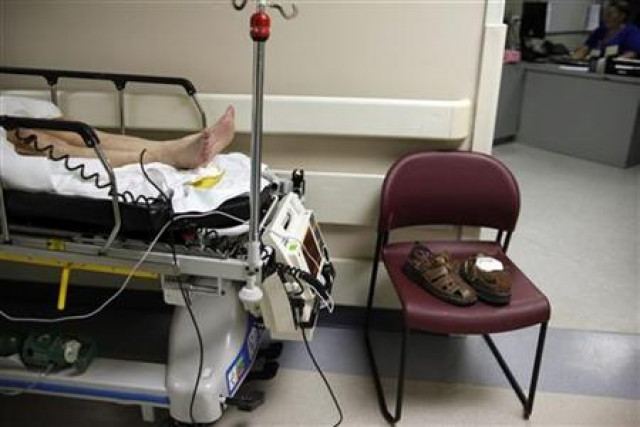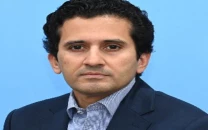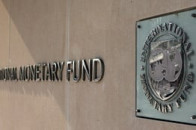Without Sindh’s ‘blessing’, ECNEC expands free health services
Province refuses to provide financing; Punjab and K-P willing to cooperate

Representational Image. PHOTO: REUTERS
Headed by Prime Minister Shahid Khaqan Abbasi, the Executive Committee of National Economic Council (Ecnec) approved 11 projects costing more than Rs140 billion. It was the first Ecnec sitting after the prime minister slashed funding for more than 400 projects by up to 60% because of slow progress on these schemes.
Ecnec - the country’s highest project approval body - gave its backing to the Prime Minister’s National Health Programme Phase-II. However, a representative of the Sindh administration expressed his government’s inability to make any financial contribution to the health programme, said an official statement.
Officials present in the meeting said Punjab and Khyber-Pakhtunkhwa (K-P) governments were ready to expand the programme in their provinces.
Sindh govt is providing best health services to people: CM
The project is aimed at providing health services across the country, especially to women and children, and reducing health care expenditures by vulnerable segments of the society, the statement released by the Prime Minister’s Office said.
Ecnec also gave the go-ahead to two projects for the country’s largest metropolitan city which would help minimise water pollution in Karachi.
Of the two projects, the Greater Karachi Sewerage Plant (S-III) scheme was approved at a revised cost of Rs36.2 billion, which was 358% higher than the original estimate.
Despite earlier orders of an inquiry into the 10-year delay in project execution, Ecnec did not fix any responsibility.
The Central Development Working Party had ordered the investigation to determine reasons for the delay and the huge cost escalation. However, the probe, conducted by a Sindh government department, did not specifically hold any official responsible.
Instead, the inquiry blamed weak planning and delay in the release of funds as main causes behind the unfinished work.
The project was very important to take care of environment, reduce pollution and support the fishery department in Sindh. Meeting participants emphasised the need for effective monitoring of project implementation in order to ensure uninterrupted and smooth work.
The federal government did not increase its financing for the project from the earlier commitment of Rs3.9 billion.
Ecnec approved the establishment of Combined Effluent Treatment Plants (CETP) in the industrial areas of Karachi including the laying of interceptor sewers at an estimated cost of Rs11.8 billion.
Healthcare providers record ‘at your service’ video message
It was decided that the federal government’s share would come from the Public Sector Development Programme.
The setting up of CETPs will help industrialists to run their plants and their operational and maintenance cost would be paid by the users and industries, which would be charged by the Karachi Water and Sewerage Board.
Ecnec approved the scaling up of the Glacial Lake Outburst Flood (GLOF-II) Risk Reduction in Northern Pakistan project at a cost of Rs3.94 billion.
Owing to rising temperatures, glaciers in Pakistan’s northern mountain ranges are melting rapidly and a total of 3,044 glacial lakes have emerged in Gilgit-Baltistan and K-P.
Of these, 33 glacial lakes have been assessed to be prone to hazardous outburst of flooding.
The project is a continuation of the four-year Reducing Risks and Vulnerabilities from GLOF in Northern Pakistan (GLOF-I) project.
GLOF-II will scale up the GLOF-I from two districts (one each in K-P and Gilgit-Baltistan) to 15 districts, benefiting 29 million people or 15% of the population of Pakistan.
Ecnec cleared a scheme of the Punjab government called Enhancing Public-Private Partnership in Punjab at a cost of Rs23.5 billion.
The programme will provide direct financial support for the Viability Gap Fund, Project Development Fund and capacity building besides providing adequate financial resources for government departments for project identification, transaction execution and development of sustainable public-private partnership projects.
The meeting approved extension in the completion date for the National Electronics Complex of Pakistan (Phase-I) Nescom Islamabad at a cost of Rs10.8 billion.
It gave approval for the widening and improvement of Ghalani-Mamad Ghat Road project in Mohmand Agency, Fata.
Projects for the rehabilitation of assets damaged as a result of riots of December 27 and 28, 2007 and during the 2010 floods were approved at a cost of Rs10.5 billion and Rs9.6 billion respectively.
About projects related to water resources, the meeting approved construction of the Jalalpur Irrigation Canal at a cost of Rs32.7 billion and construction of the Papin Dam at a rationalised cost of Rs5.3 billion.
Published in The Express Tribune, February 8th, 2018.
Like Business on Facebook, follow @TribuneBiz on Twitter to stay informed and join in the conversation.



















COMMENTS
Comments are moderated and generally will be posted if they are on-topic and not abusive.
For more information, please see our Comments FAQ